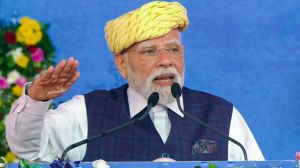India terms US zero tariff plan ‘unfair’
India has strongly opposed the US proposal submitted to the WTO for eliminating tariffs on industrial and consumer goods by 2015, terming it...

India has strongly opposed the US proposal submitted to the WTO for eliminating tariffs on industrial and consumer goods by 2015, terming it “clearly unfair” and against interests of developing countries.
Addressing the WTO meeting on Market Access here on Monday, India’s ambassador K.M. Chandrasekhar said the call on developing countries to bind their tariffs to zero was “clearly unfair” and did not take into account their developing and budgetary needs.
|
RBI hikes Indian investment ceiling in Saarc
|
|
|
Mumbai: Liberalising the norms for Indian overseas investment, the Reserve Bank of India has enhanced the investment ceiling on direct investment through automatic route in Myanmar and Saarc countries, excluding Pakistan, by $50 million to $150 million. ‘In case of Nepal and Bhutan, the ceiling has been doubled to Rs 700 crore from the existing Rs 350 crore for rupee investment’, RBI said in a notification to forex dealers here on Tuesday. |
He was speaking shortly after the US formally presented its proposal to its WTO partners, which aims at gradually eliminating all non-agricultural tariffs by 2015.
He pointed out that tariffs were vital for government revenues, with customs tariffs accounting for between 30 and 40 per cent of overall tax revenue for developing countries, as compared to the US, where it was about 1 per cent. Other developing countries including Malaysia, Pakistan and Philippines also highlighted similar concerns.
However, the US ambassador to the WTO, Linnet Deily, insisted that the proposals were “bold and fair” and poor countries stood to benefit.
Industrial goods make up about 89 per cent of developing countries’ exports, she said on the first of the two scheduled days of market access talks, part of the Doha development round of trade negotiations due to run until the end of 2004.
“Through the US proposal, developing countries would secure within five years bound duty-free market access for non-agricultural goods now entering developed country markets at tariff levels at or below 5 per cent,” she said. “This accounts for more than three-quarters of imports to the United States, Europe and Japan,” Deily said.
“Developing countries stand to gain significantly, not only through better access to developed country markets, but also from each other,” she added. The US proposal calls for cutting of all duties on manufactured goods worldwide to less than 8 per cent by 2010, and then to zero over the next five years.
Duties on goods now set at 5 per cent or less would be reduced to zero by 2010. “We are putting our own sensitive areas, textiles, apparel, footwear, glassware, on the table in an unprecedented manner,” Deily said.
The proposal was backed by New Zealand, Uruguay, Singapore and Australia.
Photos



- 01
- 02
- 03
- 04
- 05




























